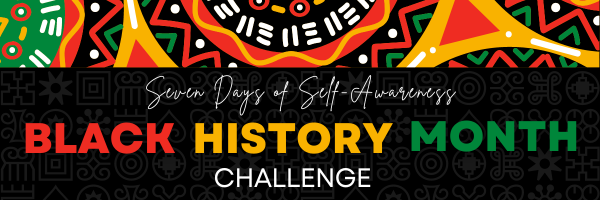Seven Days of Self Awareness
Join the State Bar of Nevada throughout 2024, as we embark on a series of challenges designed to help our members build self-awareness, support wellbeing and mental health, and become more engaged in our communities.
What are the Challenges?
Done individually and at your own pace, these challenges guide participants through a curated list of reading, listening, and viewing recommendations. The goal of exploring this media is to assist each of us to become more aware and engaged.
How do I participate?
Each challenge is a personal experience. To participate, simply check the assignment lists below and read or watch the recommended content. To help you stay engaged, we invite you to sign up for each challenge’s email list. During the official dates of the challenge, we’ll send you daily emails with links to each day’s content, along with thoughtful observations and question prompts to help you get the most out of the experience.
Sign Up for the Current Challenge
Black History Month Challenge: Feb. 19-25
From Feb. 19-25, 2024, the State Bar of Nevada invites you to join us as we celebrate Black History Month by participating in a Seven Days of Self-Awareness Challenge to help augment one’s awareness, empathy, compassion and determination to stand for racial equality. The recommended assignments are short, typically taking 15-20 minutes each day. The list includes media focused on the Black American experience, with perspectives on Black history, identity, and culture. It also specifically includes perspectives from Black lawyers and judges in America.
Assignment List
- Article: The Story Behind Black History Month: “Black History Month shouldn’t be treated as though it is somehow separate from our collective American history or somehow just boiled down to a compilation of greatest hits from the March on Washington or from some of our sports heroes,” said former President Barak Obama. Read this article from NPR explaining why Black History Month is celebrated in February and learn the origins behind this annual celebration.
- Video: Kids Explain Black History Month: What does Black History Month mean to you? Explained by fifth – eighth graders, this short video provides us with a starting point to remember the Black pioneers who fought for equal rights in America. And, as told by one fifth grader, we celebrate Black History Month “because we are all people, and we need to stand up for our rights.”
- Article: Black History Month: A Nevada Retrospective: Learn about Nevada’s Union roots, life in Las Vegas during the civil rights movement, the casinos that made a difference, and how present-day Las Vegans are equipped to handle what’s ahead in this article interviewing Claytee White, director of UNLV’s Oral History Research Center and a Black woman who has lived in Las Vegas for three decades.
- Video: The Hill We Climb: “Somehow we weathered and witnessed a nation that isn’t broken, but simply unfinished.” Listen to Youth Poet Laureate Amanda Gorman’s poem, given at the 2021 Presidential Inauguration.
- Article: Profiles in perseverance: Today’s challenge highlights some of the lesser-known Black leaders in America’s history, including that of Bayard Rustin, an openly gay man and pacifist who convinced Dr. Martin Luther King to adopt a platform of non-violence and organized the 1963 March on Washington, or Jane Bolin, a woman of many “firsts,” including being the first Black woman to serve as a judge in the United States. Read this CNN article showcasing the lives of 28 seminal figures in American history.
- Blog/Playlist: 15 Artists You Should Listen to During Black History Month: “Simply put, music is a powerful tool used to overcome the binding nature of oppression.” This blog article takes a look at influential Black musicians and the impact they’ve had on cultural awareness. Artists range from jazz and R&B to rap and hip-hop and the music selection spans decades.
- Article: Judges on Race: Reducing Implicit Bias in Courtrooms: “All of us are products of our lived experiences; consequently, our implicit or unconscious biases are part of being human.” In this article, U.S. Circuit Court Judge Bernice Donald explores how implicit biases affect our decision-making. Although told from the perspective of a sitting judge and addressed to members of the judiciary, are there lessons that we can take that apply to our legal practice? How do implicit biases affect your decision to represent a client, your perceptions of opposing counsel, or your selection of potential jurors?
Past Challenges

